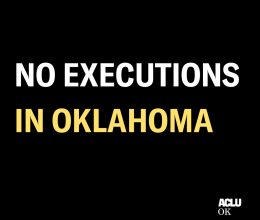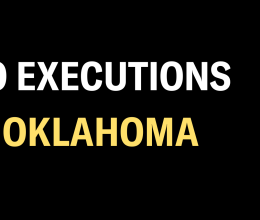
OKLAHOMA CITY -- Late Thursday afternoon, Gov. Mary Fallin's office released a list of questions and answers regarding the stay of execution she issued for Richard Glossip. Gossip was set to be executed at 3 p.m. Sept. 30. However, problems with the drugs obtained by the Department of Corrections caused the governor's office to stay the execution until November 6.
Fallin's office said she ordered the 37-day stay because the DOC received potassium acetate instead of the court-approved potassium chloride. Since then, Oklahoma Attorney General Scott Pruitt has asked the Oklahoma Court of Criminal Appeals to put all future executions on hold.
Pruitt also issued a media statement on Thursday. Pruitt said the state must ensure that it can carry out executions properly and lawfully.
“Not until shortly before the scheduled execution did the Department of Corrections notify my office that it did not obtain the necessary drugs to carry out the execution in accordance with the protocol,” Pruitt's statement said. “Until my office knows more about these circumstances and gains confidence that DOC can carry out executions in accordance with the execution protocol, I am asking the Oklahoma Court of Criminal Appeals to issue an indefinite stay of all scheduled executions.”
The Nov. 6 execution date is five days after a new state law goes into effect. That law would allow the state to use Nitrogen Hypoxia as an alternative execution method. Fallin's office said the state would not use the alternative method unless the court rules the state's current three-drug protocol unconstitutional.
Here are the governor's list of questions and answers:
Q: When did the Oklahoma Department of Corrections (DOC) realize it had potassium acetate instead of potassium chloride?
A: DOC’s execution chemicals were received on the day of the execution (Wed, Sept 30) in a sealed package. DOC staff became aware they had potassium acetate instead of potassium chloride in the early afternoon and immediately began the process of notifying both the office of the attorney general and the office of the governor.
Q: Why does DOC receive execution chemicals the same day as the execution is carried out?
A: DOC is not authorized by state or federal law to store or possess execution chemicals other than on the day of the execution.
Q: Does that same-day delivery contradict the execution protocol?
A. No. The protocol for “obtaining chemicals and equipment” does not include a timeline. It is available here: http://www.ok.gov/doc/documents/040301ad.pdf
Q: Why did DOC receive potassium acetate instead of potassium chloride?
A: The pharmacist used by DOC could not obtain potassium chloride and instead used the medically appropriate equivalent (potassium acetate) without notifying DOC.
Q: Why was the execution stayed if potassium acetate can be substituted effectively for potassium chloride?
A: The decision to delay the execution was made because of the legal ambiguity surrounding the use of potassium acetate. Out of an abundance of caution and acting on the advice of the attorney general and her legal staff, Gov. Fallin delayed Glossip’s execution so any legal ambiguities could be addressed. The state of Oklahoma has an execution protocol which has been heavily litigated and approved by federal courts.
Q: Did the state try to acquire potassium chloride after realizing it had received potassium acetate?
A: Yes. It was determined the state could not receive potassium chloride in a timely manner.
Q: What is happening now?
A: The offices of the governor, the attorney general and DOC are working to address any legal ambiguities regarding DOC procedures and execution chemicals. Executions will resume once those issues have been addressed to the satisfaction of all three parties. In the meantime, the attorney general has requested an indefinite stay of the executions for Richard Glossip, Benjamin Cole and John Marion Grant.
Q: Is the state considering using Nitrogen Hypoxia for Richard Glossip’s November 6 execution?
A: No. Execution by nitrogen hypoxia becomes legal on November 1 as an alternative to lethal injection. Oklahoma’s method of execution will continue to be lethal injection unless a court rules that the state’s current protocols are unconstitutional.


